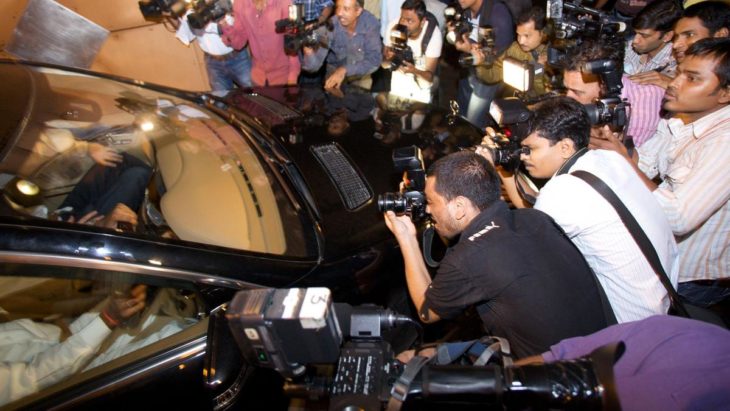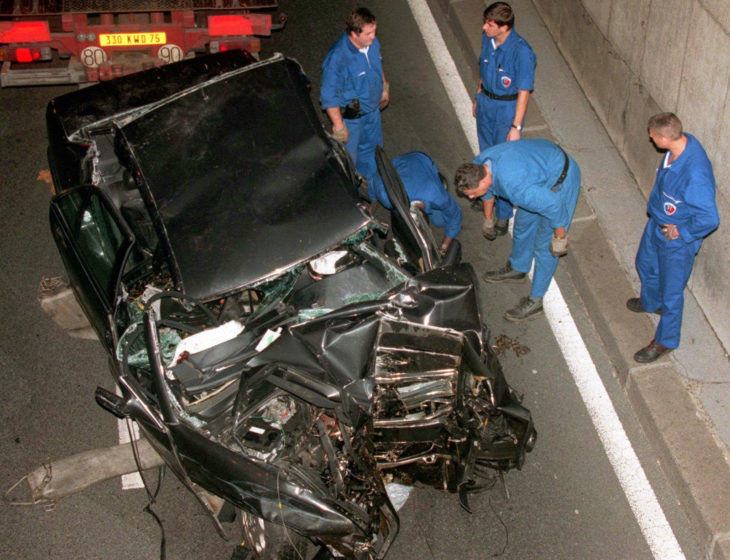Dealing with the press is an inevitable part of being a celebrity. When someone reaches a certain level of fame, he or she expects to run into people filming or photographing their daily lives. Sometimes, however, the paparazzi cross lines into criminal conduct. The paparazzi may be guilty of trespassing, harassment, and breaches of privacy. The same is true of gossip magazines. According to defense firm, Banks & Brower LLC, innocent speculation may not be criminal, spreading the libel that hurts the subject’s reputation or invading the individual’s privacy could lead to lawsuits. Celebrities can sue and win cases against the paparazzi and gossip magazines.

Source: The National
Grounds for Suing the Paparazzi and Tabloids
It may be possible for celebrities to file lawsuits against the paparazzi and/or gossip magazines if the defendant’s actions reach the level of criminal conduct. Most states have laws banning certain actions that infringe upon human rights. Harassment, for example, is a common ground on which celebrities may bring claims against camera people. Celebrities may also bring claims on other grounds depending on the situation.
- Trespassing. The paparazzi may not trespass on a celebrity’s property to get their shots. Climbing fences or otherwise entering the property without the owner’s consent or permission is a crime. Penalties for trespassing can include jail time and/or fines.
- Invasions of privacy. This crime involves intruding into a celebrity’s personal life without just cause. An invasion of privacy gives the victim the right to pursue civil damages from the perpetrator. Even someone in the public eye has the right to be free from paparazzi invading his or her private affairs.
- Defamation. Defamation is a common reason for celebrities to bring lawsuits against tabloids and gossip magazines. Written statements about a celebrity could fulfill the definition of libel if they are untrue and injure the subject’s reputation.
One state, California, passed a law specifically regarding the harassment of children. California State Bill 606 states that intentionally harassing someone’s child or ward because of the parent’s employment is a misdemeanor punishable with up to six months in jail and/or a fine of up to $1,000. A second conviction comes with a mandatory 5 days in county jail, while a third or subsequent conviction comes with 30 days behind bars.

Source: Jezebel
Criminal vs. Civil Lawsuits
Filing a lawsuit against the paparazzi or a gossip magazine generally means bringing a civil lawsuit on behalf of the victim and/or the victim’s family. Civil lawsuits seek money damages from the at-fault party for causing harm such as emotional distress, trauma, and mental anguish. A criminal case, on the other hand, involves city prosecutors bringing charges against a defendant for committing a crime. A celebrity can choose to press charges and cooperate with a criminal case against the paparazzi or a gossip magazine. As a victim, the celebrity may also have the ability to file a civil claim.
A civil claim aims to reimburse the plaintiff – the victim – for losses he or she suffered because of the defendant’s criminal actions or breaches of duty. Compensable losses may be economic or noneconomic. Celebrities who have filed civil lawsuits against the paparazzi and gossip magazines and won include George Clooney, Halle Berry, Jennifer Garner, Nicole Richie, Jennifer Aniston, Adele, and Caitlyn Jenner. Defendants in these cases have had to pay five- to seven-figure settlements and verdicts to the impacted celebs.

Source: Encyclopedia Britannica
Royals have also been involved in lawsuits against paparazzi and tabloids. An inquest after the death of Princess Diana found the paparazzi guilty of contributing to the fatal crash by the speed and manner in which they followed Diana’s car. More recently, Prince William and Duchess Kate filed a lawsuit against a French magazine for publishing topless photos of the duchess. They received a settlement for this startling invasion of privacy, which involved the paparazzi using a long-lens camera to photograph Duchess Kate sunbathing on a private balcony.
